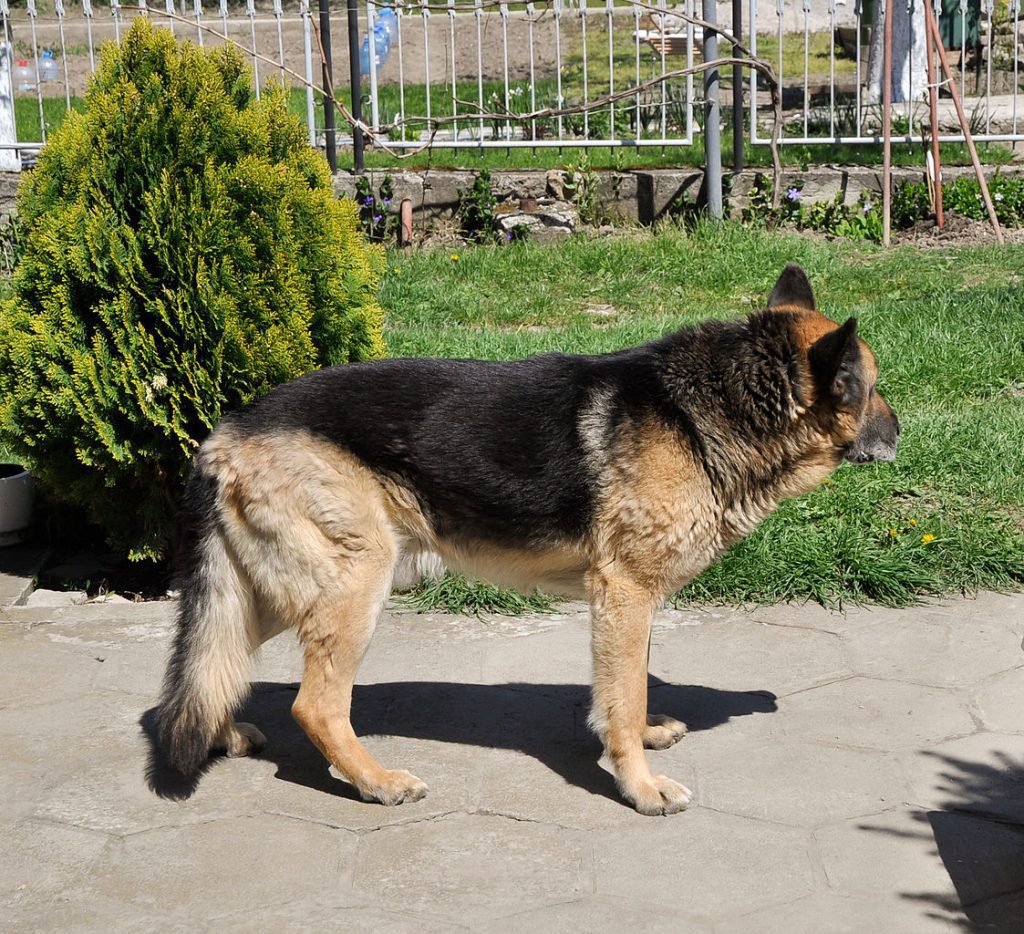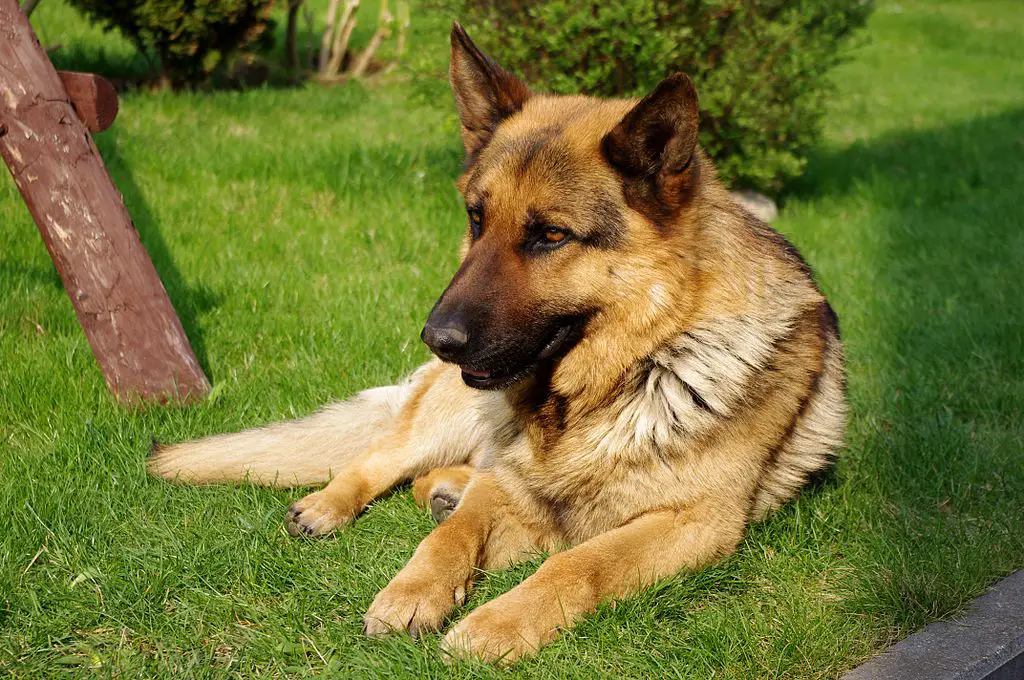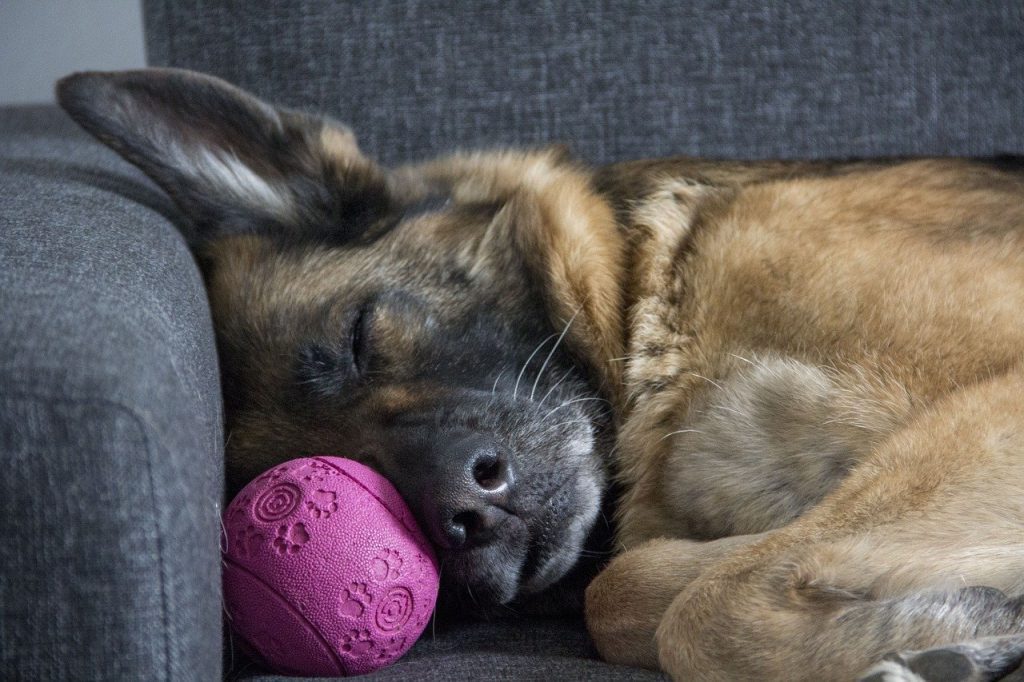Many people are curious about whether or not German Shepherds can be left alone. The answer is not a simple one, as there are many factors to consider.
In this blog post, we will take a closer look at the question of whether or not German Shepherds can be left alone. Plus, we will provide some insight based on our own experience and research.
Key Takeaway
- German Shepherds, particularly well-trained adults, can be left alone for up to 8 hours, though many experts recommend no more than 4 hours, depending on their socialization, training, and age.
- German Shepherds, being social animals, typically do not prefer to be alone and thrive on companionship and interaction with their humans.
- To prevent your German Shepherd from getting bored, provide regular exercise, engage them in games and puzzles, rotate their toys, ensure they have interaction with other dogs or humans, and maintain a consistent routine.
Can German Shepherds Be Left Alone?

While German Shepherds can technically be left alone for short periods of time, it’s not advisable to do so. If you must leave your German Shepherd alone, make sure that they have plenty of toys and activities to keep them occupied. A bored German Shepherd is more likely to get into trouble than one who is kept busy.
German Shepherds are bred as working dogs, and as such, they have a strong need for mental stimulation and physical activity. If your dog is young or high-energy, he may not do well left alone for long periods of time.
However, an adult German Shepherd who has been properly trained and socialized should be able to handle being left alone for several hours at a time.
No dog should be left alone for extended periods of time, but this is especially true for German Shepherds. These dogs were bred to work alongside their human companions and they thrive on being a part of the family.
If you’re going to be away from home for more than a few hours, it’s important to make sure your German Shepherd has plenty of food and water. He should also have access to a comfortable place to rest and plenty of toys or chew bones to keep him occupied.
If possible, it’s also a good idea to have someone check in on your dog while you’re gone to provide him with some human interaction. With proper care and attention, most German Shepherds can be left alone without issue.
However, if you’re ever unsure about whether your dog is ready to be left alone, it’s best to consult with a professional trainer or behaviorist.
Do German Shepherds Like To Be Alone?

German Shepherds are social animals and need companionship. They do not like being left alone for long periods of time and may become anxious or depressed. If you are considering getting a German Shepherd, make sure you can provide them with the attention and companionship they need.
While German Shepherds do best with another dog companion, they can also form strong bonds with humans. If you are the only human in your home, make sure to give your German Shepherd plenty of love and attention.
German Shepherds certainly don’t mind spending time by themselves. But, they will be much happier if they have a canine or human companion to spend their time with. Just make sure you give them plenty of love and attention, and they’ll be content no matter what.
Take them for walks, play games with them, and include them in as many activities as possible. With enough love and attention, your German Shepherd will be happy even if they don’t have another dog to play around with.
Just be prepared to give them plenty of exercises, both mental and physical. German Shepherds are very intelligent dogs and need stimulation to stay happy and healthy says German Shepherds Dog HQ.
How Do I Keep My German Shepherd From Getting Bored?
To keep your German Shepherd from getting bored, you need to engage them in regular exercise, provide mental stimulation through puzzles and games, offer a variety of toys, ensure they have social interactions, and maintain a consistent routine.
Regular Exercise
Make sure your German Shepherd gets plenty of physical activity. This breed is known for its energy and stamina, so regular walks, runs, and play sessions are essential. You can also involve them in dog sports like agility or flyball to keep them engaged and active.
Mental Stimulation
Mental stimulation is just as important as physical exercise. Puzzle toys, obedience training, and interactive games like hide-and-seek can keep your German Shepherd’s mind sharp and prevent boredom.
Variety of Toys
Having a variety of toys can help keep your German Shepherd entertained. Rotate the available toys to keep things fresh and interesting. Chew toys, squeaky toys, balls, and tug ropes are all good choices.
Social Interaction
German Shepherds are social animals, so interaction with other dogs or humans can help prevent boredom. Regular visits to the dog park, play dates with other dogs, or simply spending time with family members can fulfill their social needs.
Consistent Routine
Maintaining a consistent daily routine can provide a sense of security and prevent anxiety, which can lead to boredom. Regular meal times, walk times, and play times can help keep your German Shepherd content and engaged.
How Much Attention Does a German Shepherd Need?
German shepherds are intelligent, active dogs who need a lot of attention and exercise. They’re not the best breed for everyone, but if you can give them what they need, they’re incredibly rewarding companions. If you’re thinking of getting a German Shepherd, here’s what you need to know about their care and exercise requirements.
German Shepherds are working dogs, bred to herd sheep and cattle. That means they have a lot of energy and stamina, and they need an outlet for it. A daily walk is usually not enough exercise for a German Shepherd. They need at least one good long run or hike every day.
A German shepherd needs a lot of exercise, both mental and physical. They are an energetic breed that loves to play and run around. A good way to keep your German Shepherd happy and healthy is to make sure they get plenty of exercise every day.
In general, most German shepherds need at least 30 minutes of exercise per day, and more is better. If your dog is particularly high-energy, you may need to give them an hour or more of exercise each day.
And remember, it’s not just about the quantity of exercise, it’s also about the quality. A German Shepherd who spends an hour playing fetch isn’t getting the same type of exercise as a dog who goes for a long hike or run.
How much exercise your German shepherd needs will depend on their age, health, and energy level. Puppies and young dogs will need more exercise than older dogs. Dogs who are elderly or have health problems may need less exercise.
Can German Shepherd Puppies Sleep Alone?

Yes, German Shepherd puppies can sleep alone. However, it’s important to note that they may not enjoy it as much as sleeping with their littermates or with you.
If your puppy seems restless or anxious when left alone, try providing them with a cozy bed and some chew toys to keep them occupied. With a little patience and training, your puppy will learn to enjoy sleeping on its own.
Most German Shepherd experts will tell you that it is best to have your puppy sleep in his own crate or bed in your room, so he doesn’t feel isolated and alone. Puppies are social creatures and need lots of attention and human interaction. However, some people believe that having a puppy sleep in their bedroom can create separation anxiety issues later on.
If you are thinking about letting your German Shepherd puppy sleep in your room, here are a few things to consider:
- Your puppy may cry during the night if he is left alone. This can be disruptive to your sleep and may cause you to inadvertently ignore his cries. This can reinforce separation anxiety behavior.
- If you have other pets, they may not appreciate a young puppy taking over their space.
- Your puppy may not be able to hold his bladder through the night and will need to go outside frequently. This can be disruptive to your sleep as well.
Overall, it is best to consult with your veterinarian before making a decision on where your puppy should sleep. Every pup is different and what works for one may not work for another. Consider your individual situation and make the best decision for you and your furry friend!
FAQs
Q: How long can a German Shepherd be left alone?
A: Ideally, a German Shepherd should not be left alone for more than 4-6 hours at a time. They thrive on human interaction and can become bored, anxious, or destructive when left alone for too long.
Q: Can German Shepherds suffer from separation anxiety?
A: Yes, German Shepherds are prone to separation anxiety. They form strong bonds with their owners and are happiest when they are in their presence. If left alone for long periods of time, they may exhibit signs of distress such as excessive barking, destructive behavior, or even self-harm.
Q: How can I prevent separation anxiety in my German Shepherd?
A: The key to preventing separation anxiety in German Shepherds is to establish a strong bond and provide them with plenty of mental and physical stimulation. Gradually introduce them to alone time and make sure they have engaging toys and activities to keep them occupied.
Q: Are German Shepherds good family dogs?
A: Yes, German Shepherds can make excellent family dogs. They are loyal, and protective, and often form strong bonds with children. However, it is important to socialize them well from a young age and supervise interactions between the dog and children to ensure everyone’s safety.
Q: Do German Shepherds get along with other pets?
A: German Shepherds can generally get along well with other pets if properly socialized. Early and positive introductions to other animals can greatly increase the likelihood of them coexisting peacefully. However, every dog is unique, and some German Shepherds may not be as tolerant of other animals.
Q: How much exercise do German Shepherds need?
A: German Shepherds are high-energy dogs and require a significant amount of exercise. On average, they should have at least 1-2 hours of physical activity per day. This can include walks, runs, playtime, and training sessions to help keep them mentally stimulated as well.
Q: Are German Shepherds difficult to train?
A: German Shepherds are highly intelligent and eager to please, which makes them relatively easy to train. They excel in obedience training and can be trained for various tasks such as search and rescue, therapy work, or service roles. Consistency, positive reinforcement, and early socialization are key to successful training.
Q: How often do German Shepherds need grooming?
A: German Shepherds have a double coat that sheds year-round, and they typically have a heavier shedding period twice a year. Regular brushing, at least once a week, can help keep their coat healthy and reduce shedding. However, they generally do not require frequent bathing unless they get excessively dirty.
Q: What is the average lifespan of a German Shepherd?
A: The average lifespan of a German Shepherd is around 10-12 years. However, with proper care, nutrition, and regular veterinary check-ups, some German Shepherds can live into their early teens.
Conclusion and final thoughts
In conclusion, German Shepherds are loyal and loving companions who can be left alone for short periods of time.
However, they should not be left alone for too long as it can lead to behavioral problems such as destructive chewing or separation anxiety.
With proper training and socialization, a German Shepherd can become a wonderful family pet that is both independent and loving.
Taking the time to provide regular exercise, mental stimulation, and lots of love will help ensure your German Shepherd’s health and happiness.




